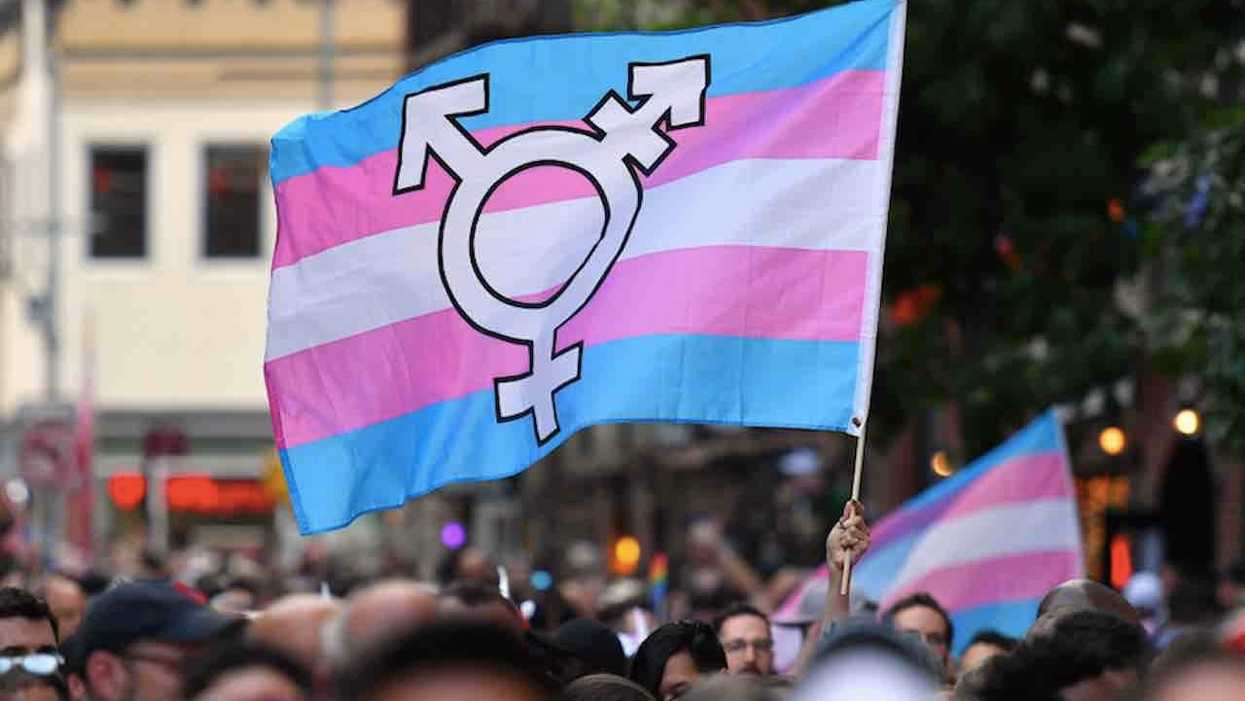
ANGELA WEISS/AFP via Getty Images

'I would probably not undergo corrective surgery if I had the same choice today'
Sweden's Board of Health and Welfare has confirmed a 1,500% rise in gender dysphoria diagnoses from 2008 to 2018 among 13- to 17-year-olds born as girls, the Guardian reported.
The severe spike reflects the fast-moving shift in public opinion regarding the appropriateness of gender reassignment procedures among young people, the paper said, adding that a year ago there were few obstacles preventing such treatment.
But in the fall 2018, the social democrat government was pressured by an LGBTQ group and proposed a new law reducing the minimum age for sex reassignment medical care from 18 to 15, removing all requirements for parental consent, and letting children as young as 12 change their genders, the Guardian said.
Which seemed to trigger a backlash, the paper reported — the first salvo coming from a noted psychiatrist who penned an article last March warning that hormone treatment and surgery on children was "a big experiment" and could lead to a huge medical scandal.
A month later, an investigative TV program ran with a documentary profiling a former trans man who regretted undergoing the irreversible procedure, the Guardian said. The paper added that in October the show probed Stockholm's Karolinska University hospital, which specializes in treating minors with gender dysphoria and has been criticized for doing double mastectomies on children as young as 14, rushing through treatment, and failing to adequately examine whether patients' other psychiatric or developmental issues might better explain their unhappiness with their bodies. The hospital disputed the claim, the paper said, arguing that it carefully assessed each case.
More from the Guardian:
At the same time, Filter magazine profiled the case of Jennifer Ring, a 32-year-old trans woman who hanged herself four years after her surgery. An expert on psychosis who was shown her medical journal by her father, Avi Ring, was quoted as saying that she had shown clear signs of psychosis at the time she first sought treatment for gender dysphoria.
Indeed, the first clinic she approached refused to treat her, citing signs of schizotypal symptoms and lack of a history of gender dysphoria. But the team at Karolinska went ahead. "Karolinska don't stop anyone; virtually 100% get sex reassignment," says Ring.
The bill that would've lowered the minimum age for sex reassignment was shelved shortly before it was due to be debated in September, the paper said, adding that the Board of Health and Welfare was ordered to take another look at the data — its report is due March 31.
In addition, the Swedish Agency for Health Technology Assessment — which was asked by the government to review the scientific research surrounding the recent surge in teen girls reporting gender dysphoria — said on Dec. 20 there was very little research into the reason for the spike or the risks or benefits of hormone treatment and surgery, the Guardian said.
The report that noted a 1,500% increase in gender dysphoria diagnoses among teen girls also found that 32.4% of them also had anxiety disorder, 28.9% of them had depression, 19.4% had ADHD, and 15.2% had autism, the paper said.
In addition, Aleksa Lundberg — a trans woman and longtime activist — is supporting the call for more research, the Guardian said, adding that last October Lundberg apologized for not having been open enough regarding depression that followed Lundberg's gender reassignment operation.
"I would probably not undergo corrective surgery if I had the same choice today," Lundberg said. "And I want to apologize to those who perhaps needed to hear that story earlier."
Also, Swedish toxicologist Karin Svens has spoken about how her trans son at age 17 announced being a boy, went to Karolinska's adult clinic when he turned 18, and now identifies as male, the paper said.
"When I started questioning this some years ago, I thought I was alone," Svens said, according to the Guardian. "They tried to scare me by repeatedly implying that there is a high risk of suicide, especially if the parents don't agree. Now more and more parents have found the courage to question what the doctors say."